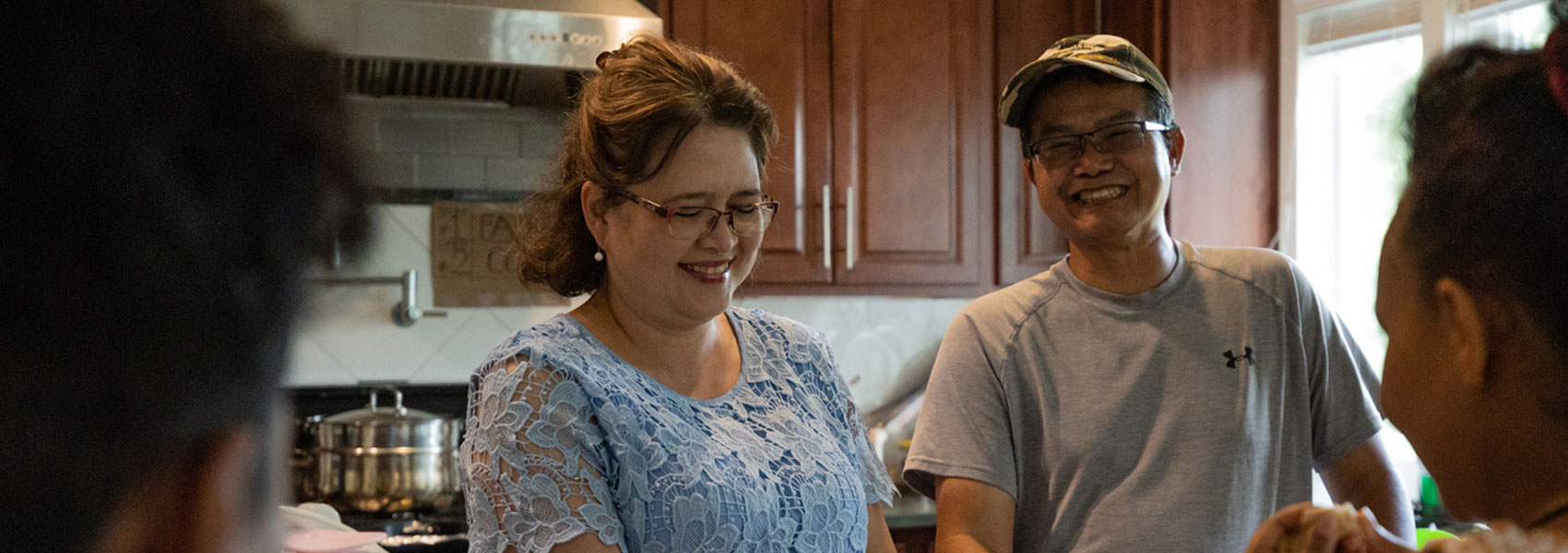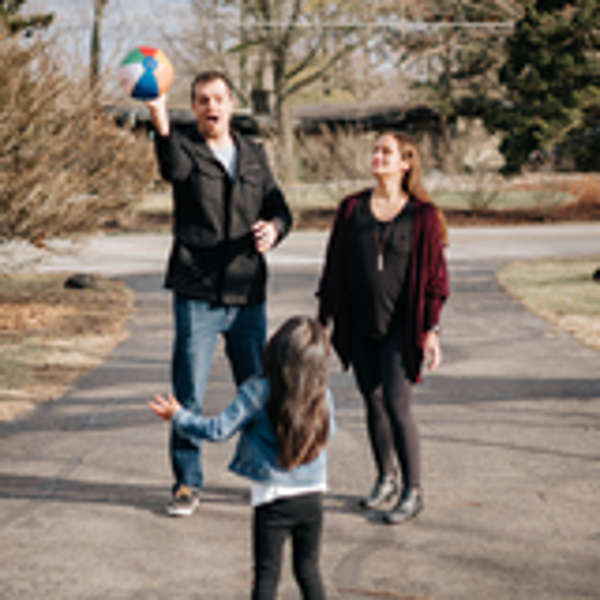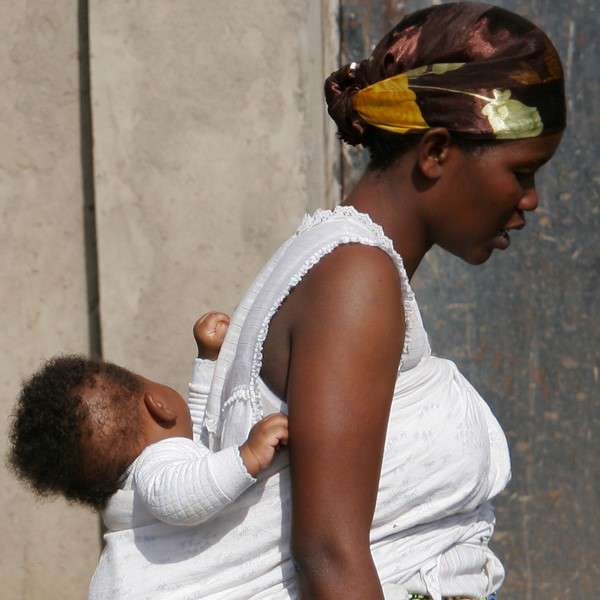We’ve been waiting for you
Q&A with Phillip and Kim Nguyen, refugee foster parents.
Q&A with Phillip and Kim Nguyen, refugee foster parents

In the 1980s, Phillip Nguyen was a young teen who fled Vietnam on an overcrowded fishing boat. He spent more than two years in a Hong Kong refugee camp before being resettled in the U.S., and he never forgot the investment his Bethany foster parents made in his life.
When he and his wife, Kim, married, Phillip expressed his desire to foster refugee teens, paying forward the kindness that had been shown to him. Together, Phillip and Kim raised three children, and today they also count six refugee teens and a baby as part of their family.
Phillip and Kim know the difference foster care makes for refugee teens who need a family.
Foster care and the refugee experience has been a key part of Phillip’s story. How did that shape your decision to become refugee foster parents?
Phillip
Everyone deserves a family. The refugee kids we’ve cared for have families; but they were forced to leave their families because of political, economic, or unsafe situations. It was never that they didn’t want a family—they wake up at night thinking about their moms and dads and the homes they left behind.
I know what that’s like. I came to the U.S. as a refugee teen, and Bethany found a foster family for me. Over the years, I wanted to find a way to give back. We enjoy having these teens be part of our family. It’s a lot of work, but it feels good to know we’re making a difference in their lives when they need it most.
Kim
I remember Phillip saying he wanted to repay what was done for him, but you can’t go back and pay the people who helped you—often they don’t need you to pay them back. But you can go forward and invest in someone’s future.
We talked about becoming foster parents for at least 10 years. I wanted to do it well, and I didn’t think I could give fostering my full attention with our three kids still at home. After they were grown and moved out, I felt like I still had more to give. I didn’t want to stop being a mom to kids who needed me.
Some refugee kids become separated from their families at a young age and then live on their own, sometimes for years, in a refugee camp. They might be 14 or 15 by the time they are resettled with a foster family—they may have spent half their childhood on their own, without a family. It’s a good feeling to know I can give these kids a safe environment where they know they’re loved. When they first get here, I tell them, “We’ve been waiting for you. And the longer we’ve waited, the more we’ve grown to love you.”
From Phillip’s experience in a refugee camp, I know these kids haven’t lived a child’s life. They get here and expect to go right to work; they see play as a waste of time. I tell them, “You’re supposed to be a kid and do kid things”—things they didn’t know they could do. It’s important to me to give them back some of that time in their life to be a kid, knowing someone else is caring for them.
Most refugee youth are resettled with a foster family before transitioning to independent living as young adults. What do you most want to teach them in that short window of time while they’re in your home?
Kim
I want them to value education. I want them to know people love them and care enough about them to teach them right from wrong. I want them to have skills so they can have a vocation and go further in life.
When they’ve been independent for so long, it’s a new experience for them to have someone telling them what to do. They don’t always like it when they have to follow rules in your home (although the same was true of our biological kids when they were that age). But it’s important that they have that experience of being part of a family, and the kids we’ve had in our home value family.
There’s so much I want to teach them, and I feel like there’s so little time to instill all the things they need to be prepared to live on their own. They listen (mostly) and ask questions, and they’ll also tell me, “Mom, you’ve said this five times already.” But that’s just part of being a mom.
Phillip
I want them to appreciate that they’ve been given an opportunity for a new life and not take any of it for granted. I have a different life today in America than I would have had in Vietnam—not because the world owed me anything, but because I’ve had opportunities to work hard for what I have. I understand where these kids have come from, and my goal is to get them ready to work hard and realize the opportunities that are here for them too.
There’s a Vietnamese saying that a child without a father is like a house without a roof. I lost both my mom and dad at a young age, and the first time I heard that saying, it hurt me to feel like I was missing something so important. So this chance to be a “roof” over a child’s life means a lot to me. I’m not a perfect foster dad in any way, but at the end of the day, the important thing is they know you love them.
What would you say to encourage someone who is on the fence about refugee foster care, maybe considering it but still unsure?
Kim
I would encourage people to go to an information meeting to learn more about it. You won’t have to sign up or do anything; just go and listen. What made the difference for me was learning
more about the need and realizing we had this empty house—what better thing could we do with it than give kids a safe place to live?
Phillip
What gives me the most joy as a foster parent is knowing we’re parents for six kids we didn’t give birth to. One day when we retire, maybe we’ll have nine kids coming to visit us in the nursing home instead of three. People build wealth in different ways, and I think that will be our wealth.
Click here or watch the video below to hear more from Phillip and Kim about their refugee foster parenting experience.



